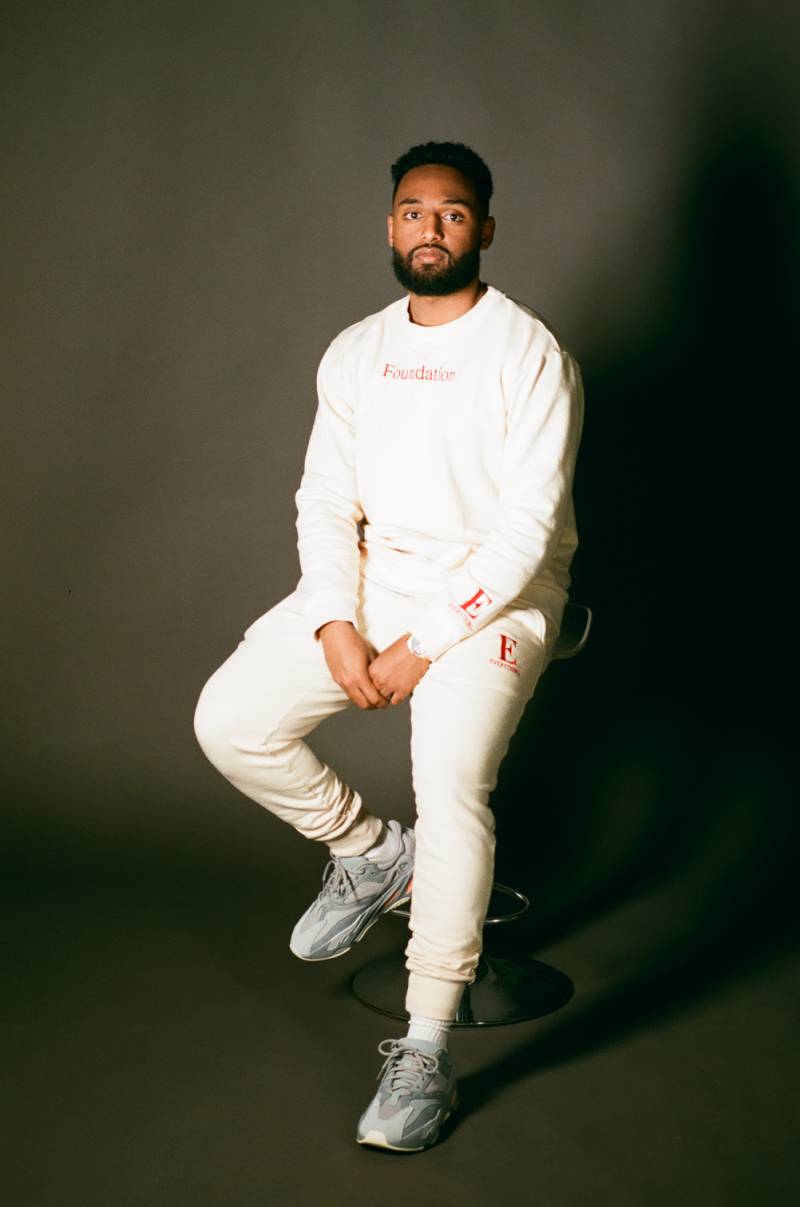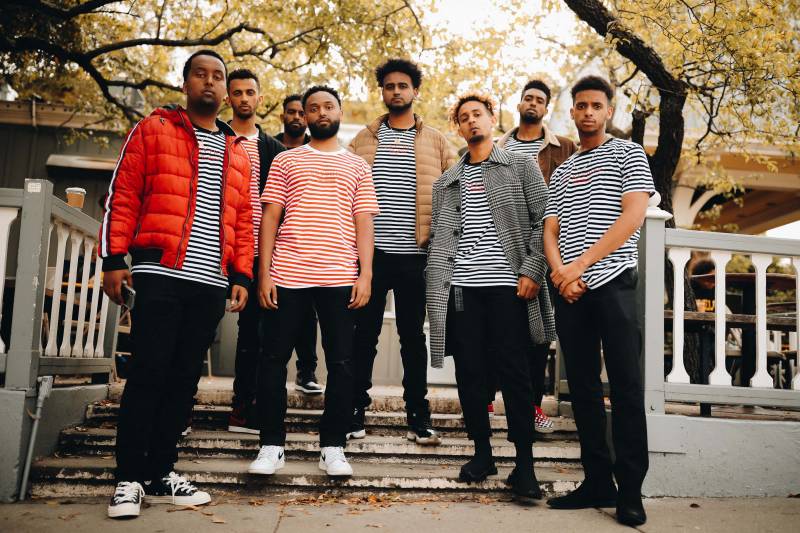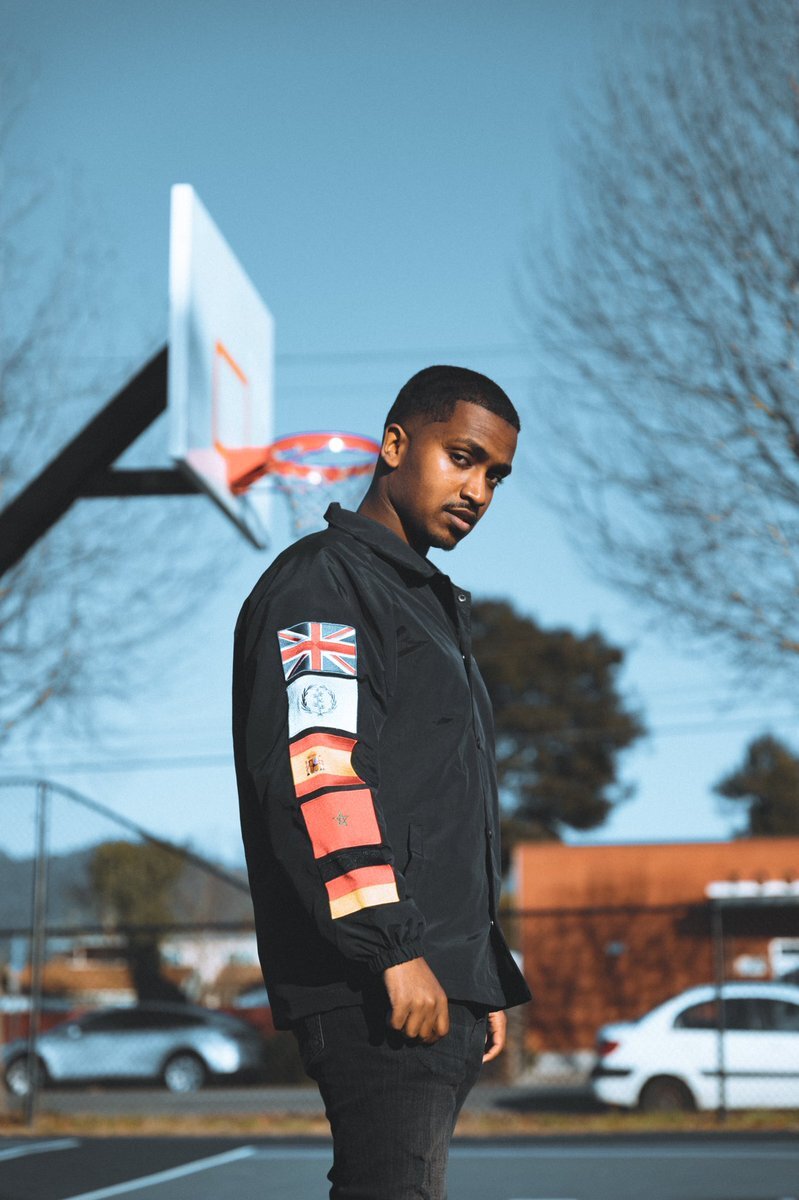
Abdulalim A’Omer grew up in a tight-knit Muslim Eritrean community in South Berkeley.
He says that experience exposed him to a little bit of everything– fashion, basketball, family, politics, religion, technology and more. It all proved to be a foundational part of Abdulalim’s multifaceted Everything brand, which wants to ask its users, what’s your everything?

Abdulalim, or Abdul for short, is the oldest of four boys. His parents immigrated from Eritrea, allowing him to become a college educated entrepreneur. Their sacrifices aren’t lost on him and he maintains a connection to their homeland. But recently, he’s watched Eritrea become enmeshed in a brewing civil conflict in the neighboring country of Ethiopia.
In this week’s episode of Rightnowish we talk to Abdulalim about how he is using technology and art to bring people into his world of culture, community and … everything.
Below are lightly edited excerpts of my conversation with Abdulalim A’Omer.
Pen: How would you describe that tight knit group you grew up in?
Abdulalim: My parents immigrated from Eritrea back in the 80s and 90s, you know, fleeing war and violence and what not. But my parents that kind of created a community around us and other Eritreans who immigrated here. They all had kids at the same time. I grew up with three other families, we have no blood relationship with, but just have this shared background. We’re all Eritrean, we’re all Muslim and our parents really made it a point for all of us to grow up together. Our parents kind of created this thing where every Friday we’d go to each other’s houses and it started off as like an opportunity to teach the kids Quran verses and then we just go have fun. We’d just go play for the rest of the night. For our parents, it’s been about almost 30 years now they’ve done it every Friday. And we have that shared history, we have that shared background. But at the same time [us kids] grew up in a different world.
Abdulalim: At home it’s like you have the same values of and traditions back home. But, you know, when you’re outside, in the Bay Area, you’re you’re black in America. I’m a black man in America and I’m facing the things that come with that. Like, I have those struggles. I share those struggles and that experience really kind of molds you… you know, you hear your stories of family members kind of back home who are really struggling right now and you’re looking to help them out.

Pen: There’s been some things that have transpired over the weekend in Ethiopia that have spilled over into Eritrea, and I just wanted to get a sense of what’s happening, how it’s impacting you and your community.
Abdualim: It’s rough man like what’s happening in Tigray is that Ethiopia was set to have elections this past year. And due to Covid-19, the prime minister and the Ethiopian government announced that they would be postponing elections. However, Ethiopia is made up of an ethnic federation, so ethnic groups kind of have their own statehoods and they have their own local governments. And the Tigray region is on an ethnic federation level, a statehood level, said ‘no, we’re going to continue to have our elections.’ That didn’t sit right with the Ethiopian government. And that’s kind of led to this higher tension. So these types of things like these relationships that have like been soured for multiple decades, you know, these go back up until like the 60s, 50s it’s just kind of taking light again today.
Pen: To be clear, there’s the conflict. Like you said, it’s been a back and forth for years, decades now…
Abdualim: Eritrea right now is one of the worst dictatorships in the world and has like the highest censorship in the world. So you’re only seeing state run propaganda. So when one day you wake up and the capital city is being attacked, you have no idea why. You don’t understand what’s going on. You don’t understand like, oh, there’s a war happening in Ethiopia and that Eritrea has actually been involved from the beginning and that now we’re being attacked because of the consequence of our actions of being involved.
Pen: When you talk about that kabosh on communications and you recently launched your media platform, how does that intertwine?
Abdualim: I studied at UC Davis and I studied international relations and world trade development. And my entire focus was really on that part of the world. You know, how could I create economic opportunity on a large scale. How can I do that back home? When I understood the privilege and the opportunity that I have. And I want to make the most of it, try to create opportunity, to try to create for the betterment of those people.
Pen: … I know your parents had to be like, ‘what you’re getting into fashion now?’
Abdulalim: But slowly, like you start seeing the community start to buy your stuff. It’s funny, I remember at one little conference here not too long ago, there was a bunch of people wearing my stuff and my dad came up to me like, “hey, like this is kind of cool. Like a lot of people are coming up to me like ‘yo, this is your son’s stuff.'”
Abdulalim: Just that kind of moment realization where they’re now like, “yo, you should do this color, you should do this design, you should you know, you’ve thought about this.” You know, giving me recommendations. So it’s really cool to see it kind of come full circle and see, like, the full potential of all this and they understand that I’m extremely invested in this, although I work a full time job and I’m trying to help support myself, them and my siblings as well. So they know like the potential and they’re seeing the growth and its def made them believe I’d say.

Rightnowish is an arts and culture podcast produced at KQED. Listen to it wherever you get your podcasts or click the play button at the top of this page and subscribe to the show on NPR One, Spotify, Apple Podcasts, TuneIn, Stitcher or wherever you get your podcasts.

